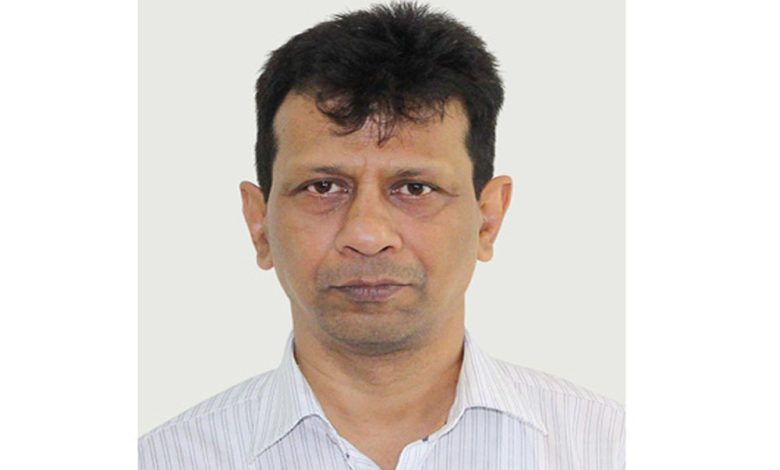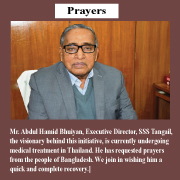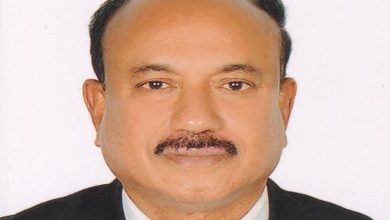Microfinance at the crossroads: FIVDB’s Bazle Mustafa Razee speaks on the future


Holiday Post Report: Bazle Mustafa Razee, Executive Director of Friends in Village Development Bangladesh (FIVDB), recently shared an expansive and assertive take on the country’s microfinance landscape in an interview with The Holiday. With decades of experience in rural empowerment, he emphasized that microfinance in Bangladesh stands at a critical juncture—technologically advancing, widely scaled, but increasingly exposed to structural and operational risks.
He said Bangladesh has over 720 licensed microfinance institutions (MFIs), running more than 26,000 branches across the country, serving about 40 to 41 million clients. Every year, they disburse nearly Tk 2.5 trillion in loans. But while digital tools like biometric on boarding and mobile repayment through platforms like bKash are increasingly becoming the standard, cracks are appearing beneath the surface.
Razee noted that fierce competition among MFIs, agent banks, and digital banks in rural markets has created borrower overlaps and pushed up default rates. Limited digital literacy, poor internet access, and weak data privacy protections have further compounded the challenge.
He warned that without proper oversight, MFIs may collapse under the weight of unsustainable growth. He said, “Financial inclusion is the mission, but it must not turn into financial chaos.”
On microfinance stability, he pointed out that low-income borrowers are often engaged in seasonal or informal work. That makes their income unstable—and repayment capacity uncertain. He added that political unrest, climate shocks, and inflation also disrupt microfinance operations. “Microfinance is not just about lending money—it’s about building a sustainable financial ecosystem. Stability is imperative” Razee stated.
Turning to the economic impact, Razee explained how FIVDB has helped thousands of rural women become micro-entrepreneurs. “Ninety percent of our clients are women,” he said, “and their financial independence has boosted their families’ nutrition, health, and education. Microfinance supports not just livelihoods—but also allows them to attain dignity.”
He argued that microfinance reduces poverty, bridges the rural-urban divide, and drives national growth. “About 70 percent of our clients cross the poverty line within a few years,” he added with certainty.
However, Razee said the sector’s success has bred new challenges. “Many borrowers take multiple loans from different MFIs to repay old ones. That creates a debt cycle.” He called for a national microfinance credit bureau to stop overlapping loans and ensure accountability.
He also called for reduced interest rates, which now hover between 20 and 27 percent annually. “With enhanced digitalization and risk controls, we can bring that down,” he asserted.
He opined that the Microcredit Regulatory Authority to be strengthened for given more autonomy, and need to use digital compliance tools for effective regulation yet fostering innovation and development. “We need a national borrower database, digital loan tracking, and a shift from credit-only models to full microfinance ecosystems,” he urged.
Razee emphasized a broader economic vision. “We must focus on microeconomics—on the small players. That’s how we drive national development.” He advocated for business incubators in rural areas, online marketplaces for local products, and skills training in agribusiness, tailoring, home-based food production, and digital skills.
“Buy local, build local,” he said, stressing that grassroots entrepreneurship is key.
On business planning, Razee outlined FIVDB’s approach: define a mission, identify the pain points of target groups, offer financial and entrepreneurial literacy, and ensure transparency. He said, “We need to understand why people fail—whether it’s lack of capital, knowledge, or access—and build from there.”
In his closing remarks, Razee pushed for a free-market-driven microfinance policy. He believes MFIs should be allowed to grow with minimal interference, guided by market demand and innovation. “But we must maintain strong client protections. Disclosure, grievance redress, and credit discipline are non-negotiable,” he insisted.
He concluded by reminding that FIVDB has been serving the financially excluded since the early 1980s. Its savings and credit services now cover thousands of women-led groups. Enterprise loans now go up to Tk 15 lakh, helping successful borrowers scale up.
“Microfinance is not just about lifting incomes,” Razee said with calm resolve. “It’s about transforming lives—and that transformation starts at the village.”




